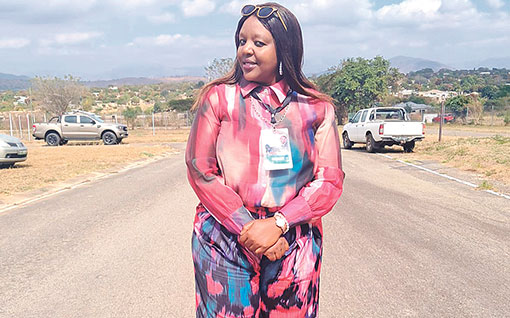Lebogang candice Legodi

Nominee's Province:
Limpopo
Project Name/Description:
Founder, Stanley Candice Foundation Centre
With her male partner, Stanley Manyama, they decided to form a centre that endeavoured to advance science, technology, and innovation to improve access to clean water, sanitation, health, and education in vulnerable communities. She says one of the biggest challenges they currently face is the Letsitele River contamination, where municipality sewage has been spilling into the river since 2020, affecting residents of Petenenge, Dan Village, and Maribeni, to this day, the problem persists. “I have experienced how this has deprived children and families of safe water and exposed them to serious health risks. This is why we decided to launch the WASH awareness campaigns to educate learners and communities on hygiene and safe sanitation,” says Candice. WASH stands for water, sanitation, and hygiene, which has become a global campaign to assist communities that suffer from the lack of such. It’s a campaign calling for clean water, better sanitation, and hygiene for every community. She says: “We seek funding to install solar-powered water purification systems in schools, providing a sustainable solution to this ongoing crisis. I have worked with schools such as Malwandla Primary in Petenenge Village, where over 741 learners now have access to clean water, and Solomondale Primary School, which has also benefited from our WASH program. I provide soap dispensers, sanitary pads, and stationery to ensure learners—especially girls—can attend school with dignity and the tools they need to succeed.” Her collaborations are with stakeholders such as the Department of Water and Sanitation, Lepelle Northern Water, municipalities, the University of Limpopo, the Tzaneen Medical Hub, private donors, and community volunteers. Through partnerships, they have been running the WASH Ambassadors Awarding Program, where learners are trained and recognised as champions of hygiene, sanitation, and environmental stewardship. “In addition, I am introducing green technologies such as hydroponic farming, climate-smart agriculture, and biogas systems. The biogas initiative will allow communities to generate electricity from waste, providing an affordable and sustainable alternative as electricity costs rise. These projects give learners and community members practical experience in science, sustainability, and innovation. The Blood River clean-up during National Water Week made me realise how science and community action can unite to restore our environment.” She concludes: “I will continue to work with Stanley and our partners to ensure that every child, family, and community has access to clean water, sanitation, dignity, education, and sustainable energy. I am committed to raising my voice for water health justice, because clean water and sustainable resources are not privileges—they are human rights.”


